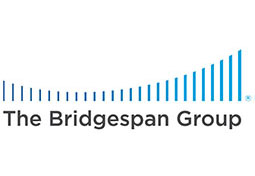A question that The Bridgespan Group is increasingly hearing from institutional foundations and high net worth individuals is: when it comes to movement building, is there a place for philanthropy?
The short answer is yes.
However, movements operate over long timeframes with unpredictable waypoints. So it’s understandable that some funders, even those who recognize the purpose and value in movements, find it difficult to see philanthropy’s role or how different mindsets can support movements more effectively.
To explore these issues we took a deep look into the criminal justice ecosystem. For funders interested in criminal justice reform, in particular, movement building is central because it strives to reimagine the criminal legal system and the harm that it causes. That kind of transformative systems change is the very work, as complex as it is, that movements, as complex as they are, are designed to do.
Our research included interviews with more than 40 movement leaders, funders, and others, as well as a review of literature, to understand how social movements can achieve equitable change and builds on the insights of organizations like Ayni Institute, Solidaire, Building Movement Project and National Committee for Responsive Philanthropy, who are leaders in the effort to shift philanthropic funding to movements.
We heard repeatedly from movement leaders that the three critical areas of the criminal justice ecosystem that are deeply under-resourced are leadership development, organizing and direct advocacy. However, when it comes to movement building, how you fund is as important as what you fund. Philanthropy can play a catalytic role in the transition to a more equitable and just world, starting with the democratization of power. Power imbalances can be almost blinding when it comes to criminal justice reform movements — where funders and justice-impacted people can exemplify the most extreme definitions of haves and have nots in our society. The following recommendations are practices funders can use, according to those closest to the work, to better support movement building efforts to transform the criminal legal system:
Embrace the uncomfortable. Issues in this space can be particularly polarized and dynamic. Shift from concern over whether an effort is too political and “risky” to a focus on if the effort aligns with equity-centered values. Ultimately, it will take policy and electoral action to bring visions of a more equitable future into fruition and sustain them. Provide more 501(c)4 funding, especially to BIPOC-led organizations.
Rethink progress and possibilities. Movements operate on decade(s)-long time horizons with ebbs and flows. Acknowledging this reality requires giving grantees more flexibility. Emphasize progress over wins and ask grantees how they measure their progress. Help connect small goals to the organization’s strategy and vision. And give grantees the freedom to fail without risk of losing funding.
Promote the ecosystem. No one is expecting a single funder to support an entire ecosystem. At the same time, it is critical for funders to take a holistic view. This means resourcing national and local organizations, collaborating with each other to ensure ecosystems are well resourced, and deepening their understanding of systemic racism and the prison industrial complex to be able to see needs and opportunities in the ecosystem more clearly.
The Time Is Now To Fund Criminal Justice Reform Movements
Philanthropy responded to the converging crises of 2020 with pledges of significant funding to chronically underfunded racial equity issues. However, some of what was promised still hasn’t arrived, and a smaller slice than might be expected ended up directed at the core issues of criminal justice reform that sparked massive protests in the first place. The need is still urgent.
Money matters for movements. Philanthropic funding will never be able to start a movement, because people would come together and fight for a better life regardless. But philanthropy is the fuel that gives movements lasting power, can propel them to the next level to achieve transformative success, and sustain them against powerful opposition.
Consider, too, that the work of criminal justice reform is broader than reducing incarceration. It is deeply intertwined with many other issues communities and funders care about, including education, access to housing, employment, economic mobility, health and mental illness, and even climate change. Because of this connectivity, those on the ground working on issues that funders might label as criminal justice often do not see themselves siloed in that way. Movement leaders see their work focused on upending a status quo that jeopardizes our collective humanity and part of the larger efforts to build a society characterized by equity and justice.
Therefore, we see investment in movement efforts seeking transformative change of the criminal legal system as not only critical for criminal justice funders but any funder seeking equitable social change.
“A lot of people feel it is very radical to divest from systems that harm and invest in alternatives,” says Thenjiwe McHarris of Blackbird. “But that discomfort comes from imaginations having been narrowed. We need to widen our imaginations in a way that speaks to what many of us know is necessary — people should not have to suffer at this extent. There is another way.”
Allana Jackson is a partner at The Bridgespan Group, based in Boston. Alexandra Williams is a manager at Bridgespan, also in Boston. They are co-authors of the report Making the Case: Philanthropy’s Role in the Movement to Reimagine Criminal Justice.



